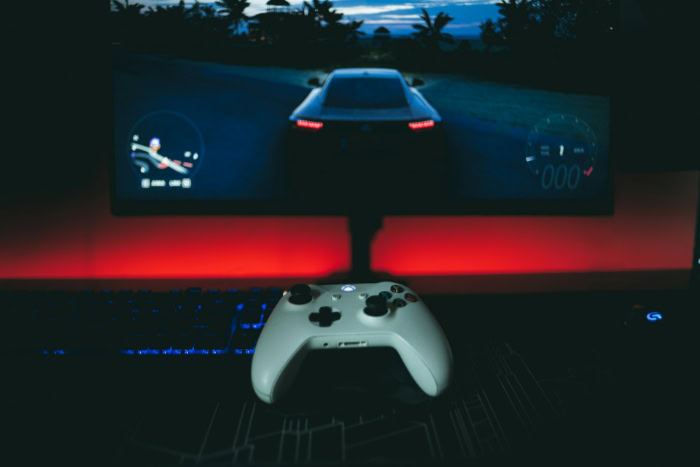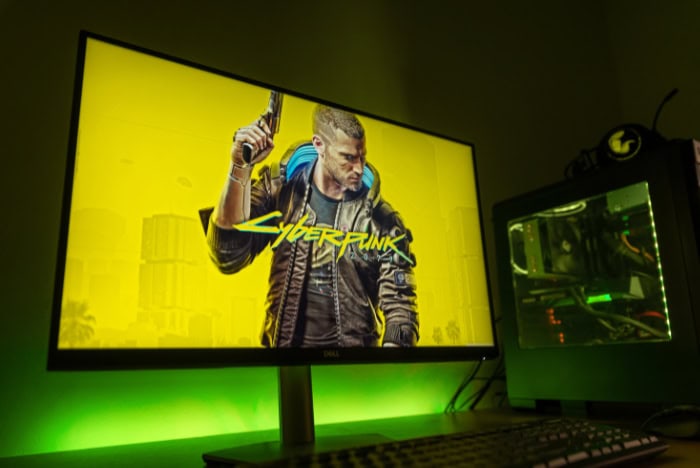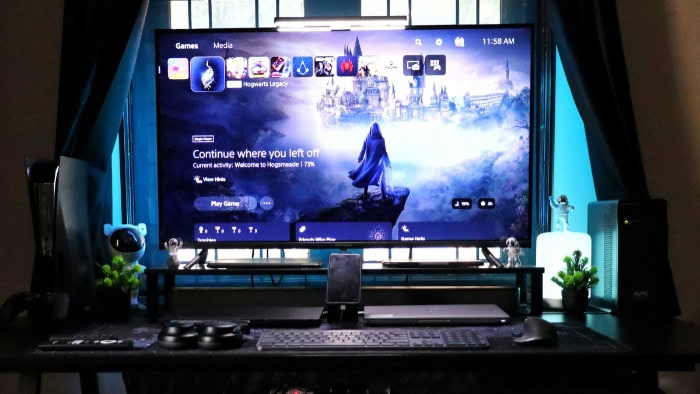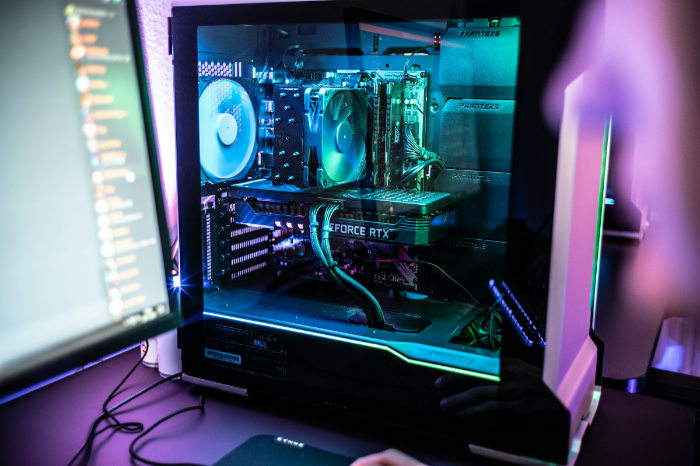PC Gaming vs. Console: Power or Simplicity?

For decades, the gaming community has been divided by a single question: should you build a PC or buy a console? This decision shapes your entire interactive experience. It dictates where your money goes and how your games look.
While loyalists on both sides claim victory, the reality is more nuanced. The perfect platform does not exist in a vacuum.
It depends entirely on your specific needs, technical comfort, and wallet.
The Price of Play
Money often dictates the final decision for new gamers. A quick glance at retail price tags usually points toward one clear winner, yet the financial reality is more complicated than a single receipt.
The true cost of gaming involves calculating the total ownership expenses over several years rather than focusing solely on the initial purchase.
Upfront Hardware Investment
Consoles currently offer the most accessible path into modern gaming. Manufacturers like Sony and Microsoft produce the PlayStation 5 and Xbox Series X at massive scale, which allows them to keep retail prices surprisingly low.
They often sell this hardware at a loss or with very thin profit margins because they bank on making that money back through software sales. For a few hundred dollars, you receive a complete, optimized system that is ready to use immediately.
This low barrier to entry makes consoles an attractive option for anyone who wants a high-end experience without draining their savings account instantly.
In contrast, entering the PC ecosystem requires a much steeper initial commitment. A gaming computer capable of matching the performance of a modern console will cost significantly more.
You have to purchase the graphics card, processor, motherboard, power supply, and case, or pay a premium for a pre-built machine. Even a budget-friendly custom build often costs nearly double the price of a current-generation console.
If you aim for top-tier performance, the price ceiling effectively disappears. You are paying for premium hardware components that are not subsidized by software sales, meaning the upfront hit to your wallet is substantial.
Long-Term Expenses
While the PC requires a heavy investment at the start, it often becomes the cheaper option over time due to the cost of software. PC marketplaces like Steam and the Epic Games Store operate in a highly competitive environment that drives prices down.
Deep discounts are common, and frequent seasonal sales allow gamers to fill their libraries for a fraction of the standard retail price. New titles often see price drops within months of release, and older games can frequently be purchased for less than five dollars.
Console digital stores do offer sales, but prices generally remain higher for longer periods. While buying physical console discs allows for resale or trading, the digital pricing structure on consoles is far more rigid than the open market found on PC.
The second major factor in long-term spending is online connectivity. If you want to play multiplayer games on a console, you are almost always required to pay a subscription fee.
Services like PlayStation Plus and Game Pass Core are mandatory for online access in the majority of titles. These monthly or annual charges accumulate quietly.
Over the five to seven-year lifespan of a console generation, these subscription fees can add up to hundreds of dollars. On PC, multiplayer gaming is almost universally free.
Once you pay your internet service provider, you can play online without any additional “tax” or gatekeeping. This freedom from mandatory subscriptions significantly reduces the running cost of a PC and can eventually offset the higher price of the hardware itself.
Performance and Visual Fidelity

Graphics and frame rates define the modern gaming standard. Players often judge a system by how realistically it renders a virtual world or how smoothly it handles fast-paced action.
The comparison here splits into two distinct philosophies. One approach chases the absolute limit of technology, offering tools to tweak every shadow and texture.
The other prioritizes a seamless experience where the hardware and software work in unison to guarantee performance without requiring any user input.
Raw Power and Customization
If visual perfection is the goal, the PC is the undisputed leader. High-end gaming rigs can produce graphical fidelity that consoles cannot yet match.
This includes native 4K resolution with sophisticated ray-tracing lighting effects that make environments look photorealistic. More importantly, PCs break the shackles of frame rate caps.
While consoles often target 30 or 60 frames per second, a powerful computer can push well beyond 144 frames per second. This fluidity changes the feel of the game, making motion look incredibly smooth and reducing the input lag between a mouse click and the action on screen.
It is not just about raw speed; it is also about control. PC games offer extensive settings menus that let users fine-tune the experience.
If a game runs slowly, you can lower the shadow quality or reduce the draw distance to gain speed. If you have powerful hardware, you can maximize every slider to see the game exactly as the developers intended.
This granular control allows the user to decide what is important, prioritizing sharpness or speed depending on the specific title.
Streamlined and Consistent Experience
Consoles take the opposite approach by offering a standardized environment. The hardware inside a PlayStation or Xbox is fixed, which gives developers a single, specific target to hit.
They can spend months optimizing their code to squeeze every drop of performance out of that specific configuration. This results in games that run with remarkable stability.
You do not need to worry if your graphics card is compatible or if your drivers are out of date.
The “plug-and-play” factor removes the technical friction often associated with PC gaming. You simply turn the system on, launch the game, and play.
There is no need to navigate complex graphics menus or troubleshoot why a game is crashing. The console manages its own resources. It balances resolution and frame rate automatically to ensure a steady experience.
For those who want to play without acting as their own IT technician, this reliability is the system's greatest asset.
The Game Library

Hardware specifications lose their meaning without software to run on them. The selection of games available on a platform is often the single most influential factor for a buyer.
Each ecosystem offers a distinct philosophy regarding access. One prioritizes high-budget content found nowhere else, while the other offers a boundless archive of history and community creativity.
Platform-Exclusive Titles
Exclusives are the primary weapon console manufacturers use to secure a loyal user base. Companies like Nintendo and Sony invest heavily in developing games that can only be played on their specific hardware.
If you want to experience the latest Mario or Zelda adventure, you must own a Nintendo device. Similarly, Sony secures high-profile narrative action games that often remain locked to the PlayStation ecosystem for years before they might eventually appear elsewhere.
These titles are frequently critically acclaimed and dominate the cultural conversation upon release.
For many gamers, the decision is simple math. If the specific games you love are held hostage by a specific console, that hardware becomes a requirement.
Microsoft has taken a different approach by releasing Xbox titles simultaneously on PC, blurring the lines between the two platforms. However, the allure of Nintendo and PlayStation exclusives remains a powerful force.
Opting for a PC means you may have to wait years to play these titles, or in some cases, you may never get to play them at all.
Backwards Compatibility and Library Access
The PC stands as a permanent archive of gaming history. When you build a computer, you gain access to a library that spans over four decades.
A modern PC can run a game released yesterday alongside a classic title from the late 1990s. This continuity is a massive advantage.
When you upgrade your computer components, you do not lose access to your previous purchases. Your library travels with you, growing larger with every year.
Consoles have historically struggled to maintain this lineage. While the current generation has made significant strides in supporting older discs and digital downloads, the experience is still fragmented.
Generational leaps often leave older games behind, or require players to repurchase “remastered” versions of titles they already own to play them on new hardware. The PC ecosystem avoids this obsolescence.
It allows players to curate a personal collection that remains accessible indefinitely, regardless of how much the hardware evolves.
The World of Modding
Modding represents a level of user control that is almost entirely unique to the PC platform. A “mod” is a modification made by a player to alter the game's original files.
This can range from simple tweaks, like fixing a bug the developers missed, to massive overhauls that add new quests, characters, or graphical improvements. The PC environment is open, allowing users to access and manipulate data in ways that closed console systems strictly prohibit.
This community-driven content can extend the life of a game for years. A title that feels dated can be revitalized with a high-definition texture pack, or a difficult game can be adjusted to be more forgiving.
Some of the most popular genres in the world today were born from mods created by hobbyists. While some consoles have begun to allow very limited mod support for specific games, it is a fraction of the creative freedom available on a computer.
On a PC, you are not just a consumer of the software; you have the power to change it.
The User Experience

How you interact with your gaming system on a daily basis is just as important as the games themselves. This relationship is defined by the friction between the user and the machine.
One path prioritizes an effortless existence where obstacles are removed before you even see them. The other offers a depth of management that puts every aspect of the operation in your hands.
Setup and Maintenance
Consoles are designed to be appliances. The process of going from the store to gameplay is intentionally short.
You unbox the device, connect it to your television and power outlet, and follow a few simple on-screen prompts. System updates typically download automatically while the machine sleeps, ensuring that the device is ready whenever you are.
This “walled garden” approach means the manufacturer handles the heavy lifting regarding stability. If a game crashes or a system error occurs, there is little the user can do other than wait for a developer patch.
It is a passive relationship that works well for those who view technology as a means to an end.
The PC experience is an active commitment. Even if you purchase a pre-built machine, the initial setup involves Windows configuration, driver installations, and software updates.
For those who build their own custom rigs, the process involves assembling delicate components, managing cable routing, and ensuring thermal efficiency. Maintenance is ongoing.
Graphics card drivers need regular updates to support new games, and background processes can occasionally conflict with gameplay.
When something goes wrong on a PC, the user is expected to troubleshoot. You might need to check error logs or edit configuration files to resolve an issue. This responsibility grants you control, but it requires patience and a willingness to learn how the system functions.
Input Methods and Peripherals
The controller is the native language of the console. It is designed for ergonomic comfort, allowing players to lean back on a couch and play for hours.
Developers design console user interfaces specifically for these devices, ensuring menus are easy to navigate with analog sticks and buttons. This input method is ideal for racing games, fighting games, and third-person action titles where movement fluidity is more important than pinpoint accuracy.
While some consoles now support keyboard and mouse input for specific titles, the controller remains the standard.
The PC is the natural home of the keyboard and mouse. This setup offers unrivaled precision, which is why the platform is the preferred choice for first-person shooters and real-time strategy games.
The mouse allows for rapid, accurate aiming that a thumbstick simply cannot replicate, while the keyboard offers dozens of keys for complex commands in massively multiplayer online games. However, the PC is also platform-agnostic.
You can connect almost any controller, including those from Xbox, PlayStation, or Nintendo, and use it seamlessly. This flexibility allows PC gamers to switch between leaning forward for a competitive shooter and leaning back for a relaxed driving game without changing systems.
Social Ecosystem
Console social features are integrated directly into the operating system. Friend lists, voice parties, and messaging are unified and accessible with a single button press.
This integration creates a consistent environment where inviting a friend to a game is intuitive and reliable. The systems are closed, however, meaning your social circle is largely restricted to others on the same platform, although cross-platform play is slowly breaking down these barriers.
On PC, the social experience is decentralized and largely driven by third-party applications. Discord has established itself as the standard for communication, offering high-quality voice chat, screen sharing, and community servers that exist independently of any specific game.
This allows for a richer social experience where you can stream your gameplay to friends in real-time or hang out in voice channels while playing completely different games. While this requires managing extra software, it connects the gaming experience to the broader internet in a way that consoles do not.
You have the freedom to use whatever communication tools you prefer, rather than being locked into a single ecosystem provided by the hardware manufacturer.
Versatility and Longevity

Buying a gaming system is a significant financial commitment, so looking at the long-term value of the purchase is essential. The device you choose will likely sit on your desk or entertainment center for years.
During that time, your needs might change. You may develop new interests, require new tools for work or school, or simply want your games to look better than they did when you first bought the machine.
Beyond Gaming
The most profound difference between the two platforms is utility. A console is a dedicated entertainment unit designed primarily to consume content.
While modern consoles can stream movies, play music, and browse the web, these functions are secondary features. You cannot effectively write a research paper, edit a 4K video, compile code, or model 3D objects on a PlayStation or Xbox.
It is a specialized device that does one thing exceptionally well, but it offers little utility outside of that specific entertainment bubble.
A PC is a general-purpose workstation that happens to play games. This versatility changes the value proposition entirely.
A high-end graphics card is not just for rendering video game explosions; it is also a powerful tool for video editing, graphic design, and live streaming. For students or professionals, a gaming PC doubles as a necessary tool for productivity.
It eliminates the need to buy a separate high-performance laptop or desktop for work. When you factor in the ability to use the machine for income-generating tasks or education, the higher entry price of the PC can often be justified as it serves multiple roles in a household.
Hardware Upgradability
The lifecycle of a console is rigid. When you buy a console, you are locked into that specific hardware configuration for the duration of its generation, which typically lasts about seven years.
As game technology advances, the console eventually struggles to keep up, leading to lower resolutions or frame rates in newer titles. The only solution is to wait for the manufacturer to release a new console and then purchase an entirely new system.
This cycle of complete replacement is the standard for the console market.
The PC ecosystem is modular. It allows you to replace individual components as needed without discarding the entire machine.
If a new game is released that demands more graphical power than your current system can handle, you can upgrade just the graphics card while keeping your processor, memory, and storage. This granular approach allows you to spread the cost of upgrades over years rather than spending a large sum all at once.
You can maintain a cutting-edge experience indefinitely by swapping out parts one by one. This modularity means a well-maintained PC never truly becomes obsolete; it simply evolves to meet current standards.
Conclusion
The debate between building a PC and buying a console ultimately comes down to a trade-off between freedom and simplicity. The PC stands as a powerhouse of versatility.
It offers the potential for higher frame rates, sharper resolutions, and a software library that is often cheaper in the long run. It is a platform that rewards those willing to invest a higher upfront cost and the effort required to maintain it, serving as both a gaming machine and a productivity workstation.
On the other side, the console remains the champion of accessibility. It delivers a polished, uniform experience where the hardware fades into the background.
It provides high-quality gaming at an affordable entry price, removing the technical barriers and configuration headaches that can frustrate the average user.
There is no objectively correct answer because the superior platform is simply the one that aligns with your specific lifestyle. If you value a streamlined, plug-and-play experience and want access to specific exclusive titles, a console is likely the right fit for your living room.
If you prefer granular control over your graphics, enjoy modding your games, and need a machine that handles creative work alongside entertainment, the PC is the better investment. Do not let internet arguments dictate your purchase.
Look at your budget, consider your technical patience, and choose the system that will bring you the most enjoyment when you finally sit down to play.

